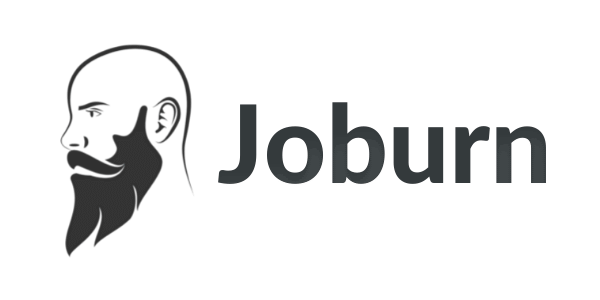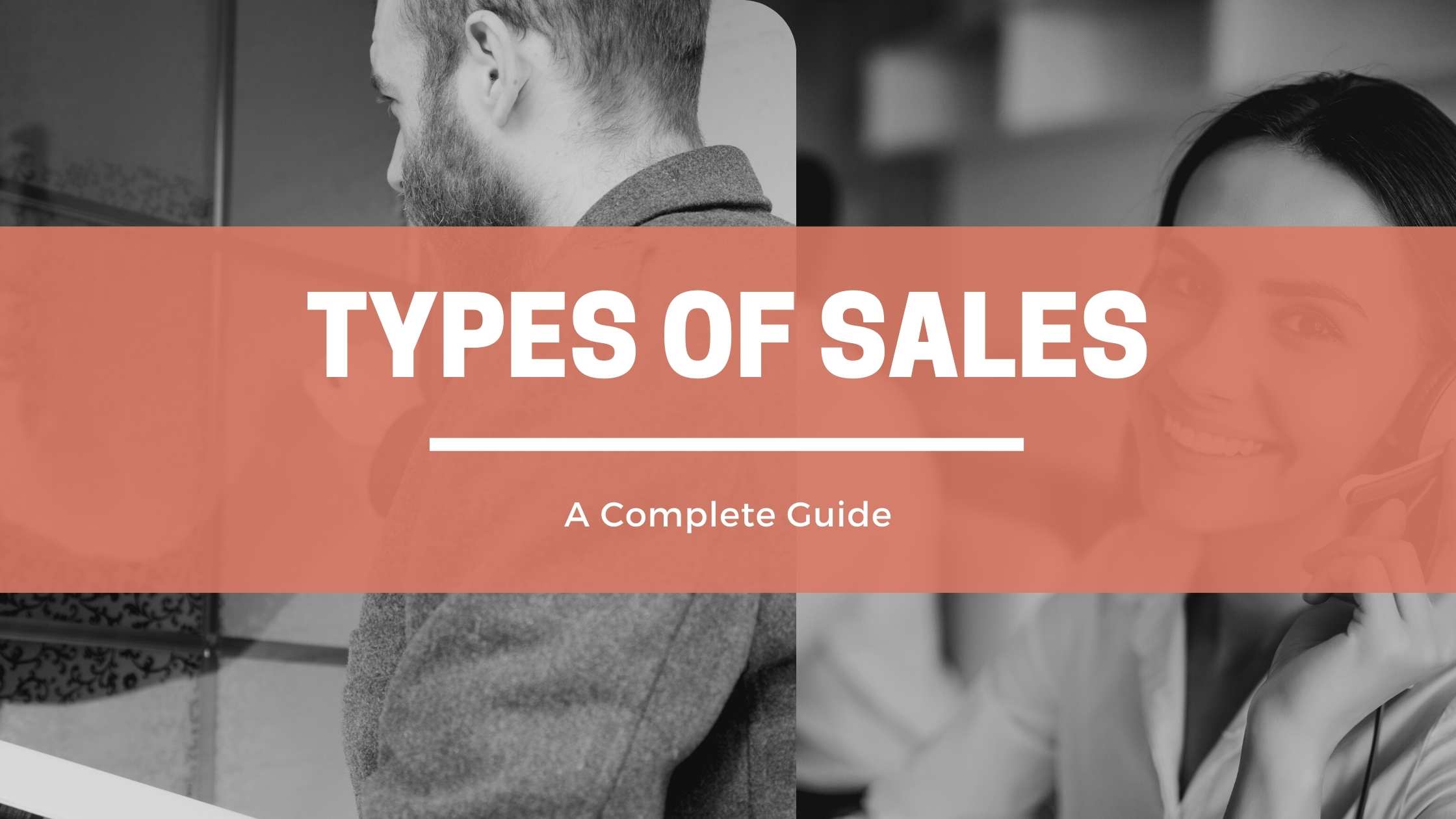Sales is the exchange of value in the form of a product or service (a company’s offer) for money. There are many types of sales that a business can pursue. It’s important to consider what type best fits your market strategy. It’s what allows your company to scale and best find customers that are a good fit for your offer.
What are the types of sales?
Here is a list of the core types of sales:
- Inside
- Outside
- Inbound
- Outbound
- Channel
- Direct
- High ticket
- Low ticket
- Business to business (B2B)
- Business to consumer (B2C)
- Digital
- Physical
Inside and outside sales are where salespeople are doing sales, where inbound and outbound are customer channels. High and low ticket sales are how expensive the product or services is. B2B and B2C sales are who is being sold to.
What is inside sales?
Inside sales is all revenue-generating activity that occurs remotely, or in a company’s office. This includes sales calls, email sales, cold calling, social outreach, and other sales-related activities that can be done within an office. The benefit of inside sales is that the sales team can save time, focus more, do more research, and can ultimately contact more people. Additionally, if they are working remotely, they can better manage their stress with a more comfortable home-environment. A downside to is that it can be harder to build a relationship with a potential customer when communication is restricted to digital platforms.
Factors to consider before using inside sales would be the following:
- Can your product or service be sold over the phone?
- Will you need to be on-location at any point in the process?
- Will your sales team be more productive remotely?
What is outside sales?
Outside sales or field sales is a selling activity where a salesperson physically approaches potential or existing customers. Outside sales professionals will also use digital and remote means to contact customers, but they will typically close the deal in person. The benefit to outside sales is that it’s easier to build a relationship and help new leads in person. The main downside is that the person in an outside sales role will need to spend a great deal of time driving. While driving, they can think, but do little else until they reach the prospect.
Factors to consider before using outside sales would be the following:
- Client location
- Company location
- Team training
- Common sale requirements
What is inbound sales?
Inbound sales is when potential clients are drawn to a product or service, and volunteer their contact information. The most commonly, inbound sales is driven by marketing. The benefit is that you can exchange money for time, and fill your sales team’s calendar with eager leads. For example, your company runs ads and a customer clicks on it and leaves their information. That information will create a lead that will go through your sales process. The goal is to develop a way to seamlessly turn that lead into a happy client.
The factors to consider before using inbound sales are the following:
- Lead management
- Marketing budget
- Average order size
- Fulfillment requirements
What is outbound sales?
Outbound sales is the process of reaching out to potential customers to sell products, services, or ideas to them. This type of sales often relies on referrals, cold calls, social selling, and keen follow-ups. The benefit of outbound sales is that it’s relatively inexpensive, making it a good choice for some organizations. For example, when a business needs to increase revenue, but don’t have an advertising budget, they can bring on salespeople to do manual outreach.
One of the drawbacks of outbound sales is that it is highly vulnerable to rejection. When reaching out to customers, the right team will want to look for ways to educate and build relationships with cold prospects. Your team might require new training to build the right knowledge for good outreach.
The factors to consider before using outbound sales are:
- Sales team size
- Outbound skills
- Prospect contact information
- Available tools for outreach (i.e. mail, email, phones, LinkedIn, etc)
What is channel sales?
Channel sales is establishing channel partnerships to extend a business’ reach to a warm audience. This will typically mean providing some benefit to a distributing channel in order to get access to their audience. The benefit of channel sales is increasing the scale of a company’s sales without needing to work on acquisition directly. Channel partners will typically buy in wholesale, or gain some kind of similar commission in exchange for selling a supplier’s goods.
What is direct sales?
Direct sales is where a company will sell directly to potential buyers. For example, this could mean advertising, generating leads, and selling to them. Similarly, it could mean sales teams cold calling, nurturing leads, and generating sales. The benefit of direct sales is that the supplying company will get more profit per unit sold. The downside is that they won’t be able to sell as many units overall.
What is high ticket sales?
High ticket sales is a term for expensive products and services. Typically, these products and services are more exclusive, or more comprehensive to justify the price. An example of a high ticket product would be expensive diamond jewelry. An example of a high ticket service would mean a lot of perceived effort or value in exchange for a lot of money. The benefit of high ticket sales is that for a company to make a lot of revenue requires comparatively fewer customers.
The factors that influence if a product or service is high ticket are the following:
- Hours required
- Perceived value
- Exclusivity
- Cost to deliver
- Risk
What is low ticket sales?
Low ticket sales is a term for inexpensive products or services. Typically these products and services are easier to access, or relatively low effort to deliver. An example of a low ticket product would be pencils – they are easy to source and manufacture in bulk. An example of a low ticket service would be cooking at an average diner. The benefit of low ticket sales is that more people can purchase the product or service, expanding a person or company’s exposure.
The factors that influence if a product or service is low ticket are the following:
- Ease of delivery
- Ease of access
- If it’s transactional
- Risk
What is B2B sales?
Business to business (B2B) sales is the exchange of value and money between two businesses. They are designed to solve problems for businesses and make things easier in some way. Typically, they are high ticket sales since the impact of a product or service can more directly impact a business’s bottom line revenue or costs.
What is B2C sales?
Business to consumer (B2C) sales is the exchange of value and money between a business and consumer. These products and services can be used to solve problems or as a status symbol. They range from low ticket to high ticket, and range widely in use cases.
What is digital sales?
Digital sales refer to the process of selling products or services online using digital channels such as websites, mobile apps, and online marketplaces. Digital sales can be conducted using various payment methods, including credit and debit cards, digital wallets, and mobile payment systems. Digital sales can be an effective way for businesses to reach a wider audience and offer their products or services to customers in different locations. It can also be a convenient way for customers to shop, as they can browse and purchase products from the comfort of their own homes.
What is physical sales?
Physical sales refer to the process of selling products or services in a physical location, such as a store, market, or fair. Physical sales can be conducted through various channels, including brick-and-mortar stores, pop-up shops, and mobile vendors. In physical sales, customers can interact with the products in person, allowing them to touch, feel, and try out the products before making a purchase. This can be an important factor in the buying decision for some customers.
What is the first rule of sales?
The first rule of sales is to listen to your customer. It can be tempting to tell people everything you know, but you’ll almost always lose the interest of your potential client. Taking a genuine interest in their success and transformation will best equip you to make the sale.
What are the types of salesperson?
A salesperson is anyone in a company that is trying to sell their products or services. There are different types of sales people, but in each job, the focus is to provide clients with solutions to their problems.
How do I choose the best type of selling for me?
The best type of selling for you is the one that creates results for you. Whether you are choosing a strategy, or directly selling to leads, it’s important to choose the right type.
The factors to consider when choosing are:
- Team size
- Team skills
- Market competition
- What you’re selling
What is the difference between inside and outside sales?
The difference between inside and outside selling is in the name. Inside sales are largely done from a static physical location, where outside sales occur wherever is necessary to meet prospects.
What is the difference between inbound and outbound sales?
The difference between inbound and outbound sales is how they work. Inbound sales are sales with the intention of closing the deal or signing a contract from marketing-generated leads. Outbound sales are sales where the goal is to reach out to and meet other businesses. The purpose is to work on a new relationship and eventually close deals.
What is the relationship between high and low ticket sales?
The relationship between high and low ticket sales is that they both involve an exchange of value for money. The only difference is how much value and money is involved in each type of exchange.
What is the relationship between B2B and B2C sales?
The relationship between B2B and B2C sales is that the principles of sales are the same, but they are applied to different groups. While B2B sales is to a business, B2C sales are to the end consumer.
What are the methods of selling?
The methods of selling are Pod, Agile, SPIN, Challenger, Consultative, MEDDIC, NEAT, Solution, Conceptual, SNAP, and Value-based. It’s important to know each type because they are well suited for different products, services, and prices.
What is the most powerful word in sales?
The most powerful word in sales is “you.” It can be easy to talk about our business or product a lot, but customers like it when the conversation is about them. The different approach of talking about someone else or their business is beneficial because it increases your chances of closing them. For example, try to describe their ideal outcome without mentioning your product very much.
What skills do you need for sales?
The skills for sales are the ability to listen, note-taking, problem-solving, knowing your product, and your team knowledge base. Additionally, you should have the ability to keep up with high volumes of calls, emails and messages. Some salespeople also need to develop the ability to work with other salespeople and sales managers. The benefit to learning these skills is that you will consistently close more business and make more commission.

